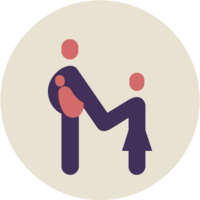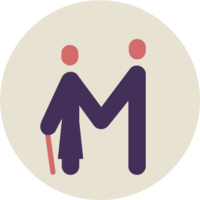The second meeting of the European network "Men in Care", a network linked to the research project of the same name led by Professor Teresa Jurado, took place on Tuesday 22 February at the UNED.
The conference focused on the analysis of the use of "birth and care" leave by men (formerly paternity leave) after the legal reform carried out by Royal Decree-Law 6/2019, which equalised the duration of leave for men and women. In addition to the results of academic research on the subject, presented by professors Gerardo Meil (UAM), José Andrés Fernández Cornejo (UCM), Irina Fernández (professor of Sociology II of the UNED) and Cristina Castellanos (professor of the Department of Applied Economics of the UNED), the conference also included the participation and points of view of other agents involved. The equality agent of CC.OO Castilla y León María Sánchez Holgado spoke about the most common queries made by working parents about the leave, the lawyer of the National Institute of Social Security Andrés Trillo focused on the pending aspects of the transposition of the so-called "European Directive on Conciliation" of 2019 and, finally, María Pazos, on behalf of the platform PPiiNAthe main promoter of the reform, presented the feminist critique of the outcome of the reform.
The meeting can be replayed in full in English here.







